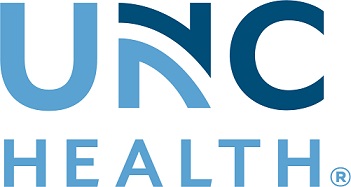Newswise — As a winter chill begins to cut through the air, it's important to be aware of the toll the falling temperatures " and the remaining holidays " can take on heart health. During the winter months the risk of severe heart problems increases by more than 30 percent, says Dr. Cam Patterson, chief of cardiology at the University of North Carolina at Chapel Hill School of Medicine and the UNC Health Care System and director of the Carolina Cardiovascular Biology Center.
Heart diseases are still the number one cause of death and disability in the United States, even though rates have started to decline in recent years. Data from the American Heart Association and others indicate that now is a good time to be mindful of keeping a healthy heart and avoiding common holiday and wintertime pitfalls.
Patterson offers these tips and a few suggested resolutions for a heart healthier 2009.
Cold weather itself can increase the likelihood of acute heart events. Studies have shown increases in hospitalizations and death rates during the winter months. Icy conditions won't cause new heart problems but they can exacerbate existing, frequently silent heart disease, Patterson says. It's unclear why, but we do know that cold weather increases blood pressure and the thickness, or viscosity, of blood, either of which can trigger a cardiac event.
Strenuous activities " such as shoveling snow and starting or continuing strenuous exercise " may be detrimental in cold weather. Moderation and common sense are the watchwords.
Too much alcohol can lead to a rapid, irregular heart rhythm called atrial fibrillation. This time of year medical professionals call it "holiday heart," a frequent reason for emergency room visits. Take a pass on another round of beer, wine or eggnog.
Depression is linked to an increased risk of heart disease, and the holidays can exacerbate or trigger severe depression. Being unmotivated to exercise or to eat a healthy diet may contribute. Fortunately, some things that ward off depression " keeping busy, watching your diet and exercising regularly " will help your overall health. If you think you need more help, don't hesitate to see a mental health practitioner.
Flu shots are still available and it's not too late to get one. Studies show that people with heart disease who get influenza have an increased risk of death, Patterson says.
Overeating causes the average American to gain 1 pound during the holidays. (People who are already overweight tend to gain more.) The bad news: the extra pound tends not to come off after the holidays. The good news: you can plan ahead and avoid weight gain. Become aware of what foods will lead you astray and reach for healthy alternatives.
Resolve to be Heart HealthyGoing into 2009, make a few resolutions " or revive old ones " to reduce your risk of heart disease. Dr. Cam Patterson, chief of cardiology at the University of North Carolina at Chapel Hill School of Medicine and UNC Health Care System and director of the Carolina Cardiovascular Biology Center, offers these heart-healthy resolutions: "¢ Stop smoking " or don't start; smoking is a major cause of death by heart disease."¢ Know your numbers " keep track of your cholesterol and blood pressure, especially if you have heart disease or there is a family history of heart disease."¢ Learn CPR and how to use an automated external defibrillator (AED) " both are easy and can save a life."¢ Give blood " there is a constant national shortage, especially during the holidays."¢ Diet and exercise " these might be the two most commonly and quickly forgotten resolutions, but eating sensibly and revving up your heart three times a week really do work, and it's never too late to start.
An infograph is available with this story.
